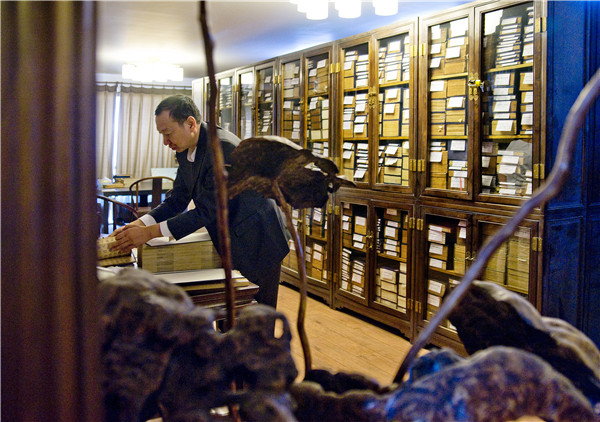 |
|
Wei Li with his collection of more than 70,000 copies of ancient books in full editions, one of the country's biggest collections for an individual collector. [Photo provided to China Daily] |
"Information is lost while copying such books, but it is crucial in comparative studies," Wei says.
For example, antique dealers in the past would tamper with the written characters to make books look even older and sell them at higher prices.
"Such falsification can only be detected when you study the original," he says.
Being a part-time researcher at the Palace Museum, and the ancient book conservation center at Fudan University in Shanghai, Wei has published numerous works on ancient books and their auctions.
His latest book, Shulou Mizong, which was released by China CITIC Press in April, focuses on old private libraries, which have been forgotten in the process of urbanization.
The three-volume book follows Wei's five-year tour of the country, visiting the relics or sites of renowned private libraries.
He says about one-third of the places he went to are not recorded in the book because even the "vestige has disappeared".
Most former private libraries are not known by local residents, except those that have been developed into tourist destinations.
Many are used as residences and offices.